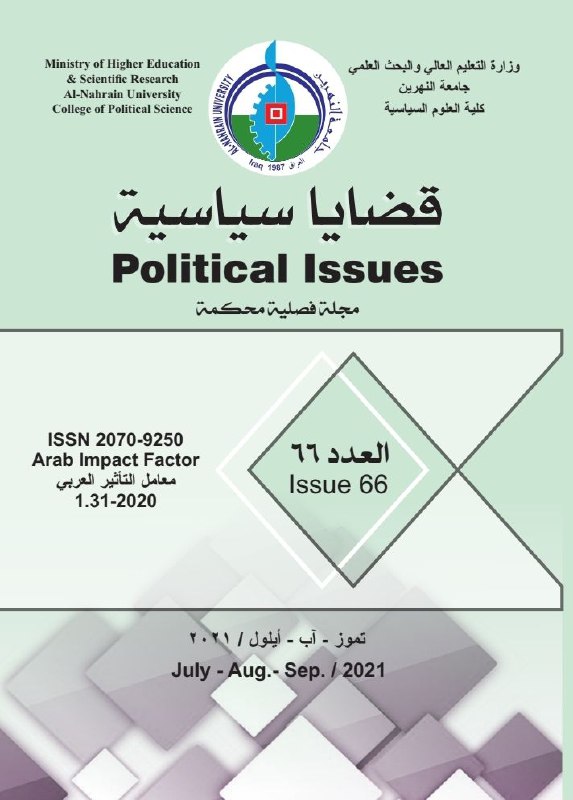Interdependence and its impact on global security
DOI:
https://doi.org/10.58298/202177Keywords:
interdependence, global securityAbstract
The theory of interdependence is considered one of the new approaches in international relations that the liberal theory came up with since the seventies of the last century to explain some of the phenomena that took the distinction of international relations, such as the growth of non-state actors and their competition with states such as multinational companies and others, which began to play effective roles in a world whose economic priorities became more. Some of them are military, as the liberal theory asserts that interdependence enhances the opportunities for regional cooperation and increases the development of global governance mechanisms, which has different effects on global security. The liberal approach to interdependence came as a critical response to the realistic theory that focused on states as the most prominent entity in international relations, that foreign trade and economic openness are a growing source of conflict and that interdependence is synonymous with insecurity and instability.
Also, the principle of reciprocity in international relations directly affects security policies and military doctrines between states, given that most security and military decisions and strategies are taken and developed as reactions to various threats in the global arena, and developments taking place between the elements and units of the current global system.

Downloads
Published
Issue
Section
License
This is an Open Access article distributed under the terms of the creative commons attribution (CC BY) 4.0 international license which permits unrestricted use, distribution, and reproduction in any medium or format, and to alter, transform, or build upon the material, including for commercial use, providing the original author is credited.





